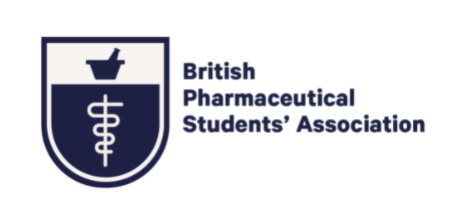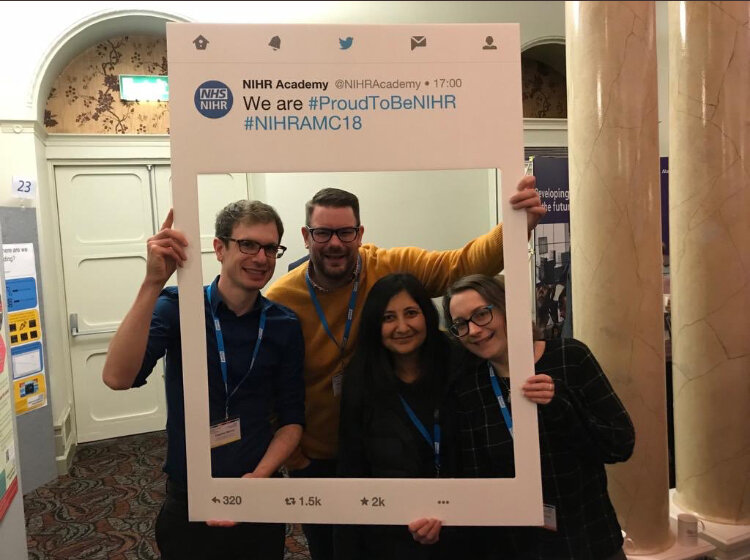Insight: HEE/NIHR Integrated Clinical Programme
My research career began when I was working as a specialist paediatric pharmacist on the Children’s Heart Unit it Newcastle. Up to that point, I had graduated from the University of Sunderland in 2009, completed a pre-registration placement at Milton Keynes District General NHS Foundation Trust and spent 18 months as a rotational pharmacist at Newcastle Upon Tyne Hospitals NHS Foundation Trust.
I really enjoyed working in paediatric cardiothoracic critical care and the challenges of optimising medicines for the variety of challenging patients that came through the door. The unit is a national centre for extracorporeal membrane oxygenation and one of the two paediatric cardiopulmonary transplant units in the UK. As you can imagine, there was a lot of medicine use which was not evidence based, but instead guided by collaborative working between the multi-professional team.
During this time I became an active member of the Neonatal and Paediatric Pharmacists Group (www.nppg.org.uk) which is the national network of paediatric pharmacists in the UK. From my own practice and talking to other similar minded pharmacists, I realised the benefits of sharing our experience and learning. This lead me to start submitting abstracts to conferences, my first abstract was a poster written with a consultant intensivist about anti-coagulation in Berlin Heart(R) devices. That was quickly followed by a case report published in a peer reviewed journal with another intensivist and microbiologist on a patient with multi-drug resistant infection on dialysis.
My career then took me to the Royal Manchester Children’s Hospital where I spent time as a specialist pharmacist in paediatric neurology and critical care, followed by a maternity secondment for a year as a senior specialist clinical pharmacist in paediatric haematology and oncology. I kept my research output going by producing further conference abstracts on medicines optimisation with the ketogenic diet and also supervising a pre-registration pharmacy project on how to reduce prescribing errors on our paediatric critical care. I then moved to Leeds Children’s Hospital and started working on the neonatal unit as a specialist rotational clinical pharmacist. At the same time I wanted to develop my academic career further, and therefore I applied for an award from the National Institute for Healthcare Research (NIHR) called the Integrated Clinical Academic Pre-doctoral Fellowship (ICA PCAF).
The NIHR Integrated Clinical Academic Programme
The NIHR in collaboration with Health Education England provide funding to help clinicians develop their academic careers. The ICA PCAF is aimed at early career researchers. It is open to a multitude of healthcare professionals such as nurses, physiotherapist, dieticians and pharmacists to name a few. The award has funded 50% of my salary to allow me to obtain an honorary academic contract hosted by the University of Leeds, whilst I retain a 50% clinical role in neonatology. It also provides funding for training and development, which I have used to complete a postgraduate certificate in health research. Most importantly, the award has provided me with academic supervisors at the University of Leeds to advise me on how to develop a PhD application. It has also provided a new network of professional contacts outside of pharmacy, through the NIHR Academy, which is the part of the NIHR that runs the ICA programme.
Over the next 12 months, I will be developing a PhD proposal to submit for the NIHR ICA Clinical Doctoral Research Fellowship award. I will utilise my partnerships within the hospital and university to develop my proposal. I am interested to discover more about how parents and children take their medicines at home. By learning about their experiences, we can then develop ways to help improve the effectiveness of medicines, by improving adherence and also to reducing harm from administration errors or side effects.
How To Get Started In Research
My advice for students looking to develop a clinical academic career is to start developing a research output as early as possible. It doesn’t require too much effort, but you do need to remember that many entry level jobs within the NHS will be funded for clinical roles rather than research. However, there are opportunities to develop research output. For instance, your undergraduate, pre-registration or clinical diploma projects.
These audits, service evaluations and projects will usually make interesting conference abstracts if written from the right perspective. The UKCPA conference, Clinical Pharmacy Congress and NPPG annual conference are good examples of conferences that accept abstracts. There is usually a category specifically for undergraduate work too. All you need to do is read the application guidance carefully and have a look at examples that were accepted from previous conferences. Getting involved in research, and developing a record of your research projects will give you the best chance when it comes to applying for a research specific position. Another important aspect is to develop your networking skills and contacts early too. In particular, finding out who your local academic pharmacists are at your nearest institution, as they can be valuable source of information.
Further details regarding the ICA programme can be found at:
https://www.nihr.ac.uk/our-research-community/NIHR-academy/
This article was written by:
Stephen Morris
Specialist Clinical Pharmacist - Neonates | Leeds Teaching Hospitals NHS Trust
NIHR ICA Pre-doctoral Fellow | University of Leeds
Orcid ID: https://orcid.org/0000-0003-0339-7018
Twitter: @sjm_85

